The Many Benefits of Beneficials
The idea of putting bugs in a garden may seem strange, but this method is gaining popularity and has proven to have fruitful results. “Beneficials” are insects that prey on those insects harmful to gardens. Cornell University’s Department of Horticulture describes the use of beneficials as a “safe, environmentally friendly means of suppressing pests.”
There are two types of beneficial insects: predators and parasitoids. Predators, such as ladybugs and lacewings, consume other insects and live as full-grown insects in the garden. Spiders also fit into this category. Parasitoids include many species of wasps and flies and generally are more specialized toward their target insects. This group develops in the body of a single, harmful insect as a larvae and ultimately kills the host insect. The adult parasitoid can then remain in the garden and will not harm plants.
Gardening With Insects
There are additional benefits to using these helpful insects. Not only are they a low-effort tool for the gardener, they also help prevent pesticide resistance from developing in the targeted insects. Pesticide resistance is a valid problem as it can be very detrimental when attempting to control harmful insects.
Resistance develops when a small proportion of the pest population survives exposure to a pesticide. Then, when this group reproduces, the resistant genes are passed along. As the process continues, the ratio of less-susceptible insects grows until gradually the majority of the population is resistant, making the pesticide less potent, according to Fruit Crop Ecology and Management, MSU Extension.
Another positive aspect of using beneficials that the Texas Master Gardeners points out on their Web site is beneficials do not create environmental pollution, and they can help protect a natural balance in the ecosystem. Beneficials can be drawn to the garden by cultivating plants that attract them naturally. Cornell University offered the parsley family and the sunflower or daisy family as common plant groups that attract beneficials.
Beneficials are in high demand, according to Scott Endres of Tangletown Gardens, Minneapolis, Minn. Tangletown offers praying mantis and ladybugs, both native species of beneficials in their area.
Getting The Consumer Involved
There are many benefits for a garden center that carries beneficials. A major one Endres mentions is the positive image the products reflect on the garden center. Customers appreciate having a pest-control option beside pesticides, and they also view the retailer in a positive light for its environmental concern. This also presents a good opportunity for the retailer to educate consumers.
If a customer is unaware of beneficials’ value, seeing them in the store may pique his or her interest and the retailer can then explain the use of beneficials. Endres points out that many customers are initially unaware of the difference between native, helpful ladybugs and the invasive Asian ladybeetles. Understanding the difference between these two species is a great first step in working with beneficials and recognizing the differences between different kinds of insects. Asian ladybeetles are more orange, and generally emit an unpleasant smell and bite as opposed to the bright-red color of a ladybug.
To educate customers, Tangletown Gardens provides information sheets that are distributed with the beneficials. This provides an easy, user-friendly explanation customers can take home with them. Endres also prefers to speak one-to-one with customers to explain the process of working with beneficials and answer any questions. Usually, there is a very positive response and most customers enjoy learning about the topic.
Beneficials are especially popular with children, and Tangletown Gardens makes its display of the insects accessible for younger shoppers. This helps get kids involved in the garden at a young age and can cultivate an environmental awareness, stated Endres. Endres said many of his customers visit Tangletown Gardens explicitly in search of beneficials. There are not many garden centers in Minneapolis that carry these products and customers who know about beneficials will seek them out. He said the stock of beneficials sells out quickly and that “they’re out as fast as they come in.”
Maintaining A Beneficials Department
Beneficials should be set out in mid to late May, but if a customer requests them before these dates, Tangletown Gardens will take down their contact information so as soon as the product is in, the customer can pick up the beneficials.
Tangletown Gardens stores its stock of ladybugs and praying mantis in a large refrigerator to keep the insects dormant. Each day, a few bags of insects are placed on the counter, and as they sell out, more are removed from the refrigerator. Any unsold insects at the end of the day are misted and returned to the refrigerator. This ensures the insects are fresh and healthy and reduces waste. Occasionally, praying mantis larvae do hatch before they are sold. In these cases, the insects are released into the show gardens to protect the gardens from harmful insects. Seeing a living praying mantis in the garden also attracts customers, allowing the insect to act as a “silent salesman.” It’s perfectly natural advertising!
Endres enjoys carrying beneficials in his garden center because “the product presents a way for customers to do right by the environment.” When asked about the cons of carrying beneficials, Endres paused. It seems there are so many benefits to the product he needed a moment to try to think of a negative aspect. He explained that “sometimes a customer will come in with an insect phobia and be worried by the sight of insects on the counter or in the refrigerator.” However, if they question the staff, these customers usually understand the place of the insects after the idea is explained.
This product is both great for the environment and healthy for the garden. The only party that loses is the harmful insects preying on your plants!




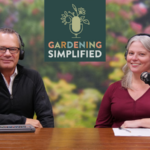

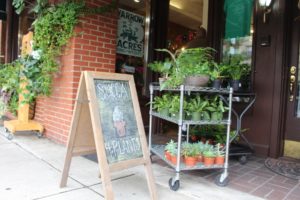
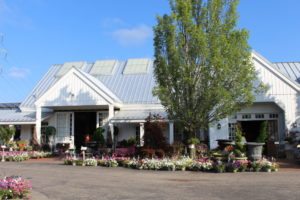



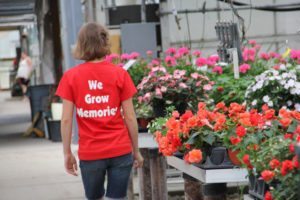
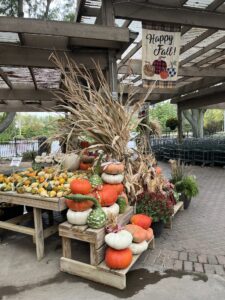
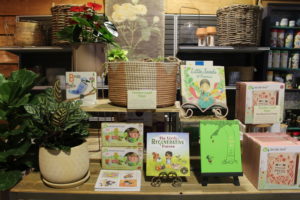

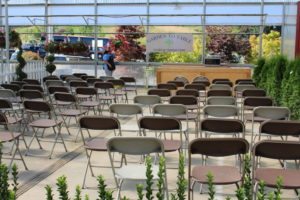
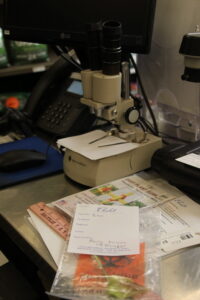
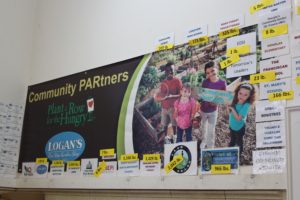
 Videos
Videos





